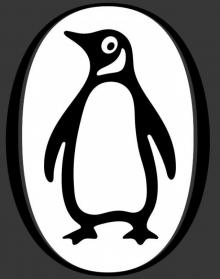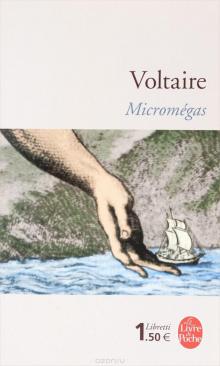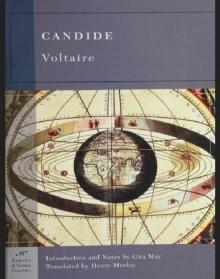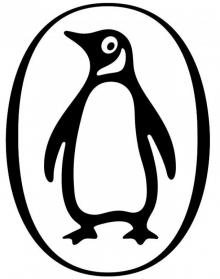Micromegas and Other Short Fictions (Penguin ed.) Read online
Page 6
After a lengthy tour, Micromégas arrived on Saturn. Though accustomed to novelties, on seeing the smallness of this globe and its inhabitants he could not at first suppress that smile of superiority which even the wisest of us is occasionally guilty of. Saturn is after all barely nine hundred times the size of the Earth, and its citizens are dwarfs a mere thousand fathoms or so tall. At first he and his retinue amused themselves a little at the expense of their hosts, just as an Italian musician arriving in France invariably laughs at Lully’s compositions.7 However, as the Sirian was not stupid he soon came to appreciate that a thinking being may be far from ridiculous even if he is only six thousand feet tall. He became well acquainted with the Saturnians, after their initial surprise had worn off. He formed a close friendship with the Secretary of the Academy of Saturn,8 a most intelligent fellow who had not, it is true, made any discoveries of his own, but who could give a very good account of the discoveries of others and was moderately adept at both light verse and heavy computations. I shall here record, for the satisfaction of readers, a singular conversation which Micromégas had one day with Monsieur Secretary.
CHAPTER II
Conversation between the inhabitants of Sirius and Saturn
After His Excellency had gone to bed, and the Secretary had drawn close to his face, the former began:
‘One has to admit’, he said, ‘that nature is full of variety.’
‘Why yes,’ said the Saturnian, ‘nature is like a flower-bed whose blooms –’
‘No,’ said the other, ‘let’s not go into your flower-beds.’
‘Nature’, resumed the Secretary, ‘is an assembly of blondes and brunettes, whose costumes –’
‘What do I care for your brunettes?’ said the other.
‘Well, then, nature is like a portrait gallery whose individual features –’
‘No!’ said the visitor. ‘Once and for all, nature is like nature. Why search for comparisons?’
‘To please you,’ answered the Secretary.
‘I don’t want to be pleased,’ the visitor replied, ‘I want to be instructed.9 You can begin by telling me how many senses the inhabitants of your globe possess.’
‘We have seventy-two,’ said the Academician; ‘and every day we complain at having so few. Our imaginations surpass our needs; with our seventy-two senses, our ring of Saturn and our five moons,10 we feel too circumscribed; despite all our curiosity, and the profusion of passions arising from our seventy-two senses, we have all the time in the world to be bored.’
‘I can well believe it,’ said Micromégas. ‘We on our globe possess nearly a thousand senses, yet there remains in us some vague unease, some nameless longing11 which ceaselessly reminds us that we are of little consequence, and that there are beings who enjoy a more perfect state. I have travelled a little. I have seen mortals who are far inferior to us; I have seen others far superior, but I have never seen any who did not have more desires than real needs, and more needs than means to satisfy them. Some day perhaps I shall find the land where nothing is lacking; but so far no one has given me positive news of such a place.’
The Saturnian and the Sirian went on to exhaust themselves in conjecture; but after much ingenious and unsettled argument they were forced to return to facts.
‘How long do you live for?’ asked the Sirian.
‘Ah! All too short a time,’ replied the little man from Saturn.
‘Just as with us,’ said the Sirian. ‘We are always lamenting the brevity of life. It must be a universal law of nature.’
‘Alas,’ said the Saturnian, ‘we live for only five hundred entire revolutions of the sun.’ (The equivalent, by human reckoning, of fifteen thousand years or thereabouts.) ‘Which, as you can see, is to die almost the moment one is born; our existence is a point in time, our span is but an instant, our globe a mere atom. No sooner do we begin to educate ourselves a little than death arrives before we have any experience of life. For myself I do not dare to make plans; I feel like a drop of water in an immense ocean. I am ashamed, particularly in front of you, of the ridiculous figure I cut in this world.’
‘Were you not a philosopher,’ Micromégas answered, ‘I should be afraid of distressing you with the news that our life span is seven hundred times greater than yours; but as you know too well, when the moment comes to return our body to the elements and reanimate nature under another form – what is called dying – when that moment of metamorphosis arrives, to have lived for an eternity or for a single day amounts to precisely the same. I have been in places where they live a thousand times longer than we do, and found that still they grumbled. Yet everywhere there are to be found people of sense, who accept their lot and give thanks to the author of nature. He has distributed through this universe a wealth of varieties with a kind of admirable uniformity. All thinking beings differ, for example, but all are fundamentally alike in sharing the gift of thought and of possessing desires. Matter everywhere has extension, but on each globe it has different properties. On Saturn how many such properties do you recognize in matter?’
‘If you mean’, replied the Saturnian, ‘properties without which we believe this globe could not exist in its present form, then we count three hundred: extension, impenetrability, mobility, gravity, divisibility, and so forth.’
‘No doubt so small a number suffices for the ends the Creator had in mind for your little dwelling,’ replied the visitor. ‘I marvel at His wisdom in all things; everywhere I see difference, but also everywhere proportion. Your globe is small, so too are its inhabitants; you have few sensations; your matter has few properties – all this is the work of Providence. Of what colour is your sun, examined closely?’
‘White, tending strongly to yellow,’ said the Saturnian. ‘And when we separate out one of its rays, we find it to contain seven colours.’12
‘Ours tends towards red,’ said the Sirian, ‘and we have thirty-nine primary colours. Of all the suns I have approached not one resembles another, just as on your planet each and every face differs from all the others.’
After several questions of this nature, the Sirian asked how many essentially distinct substances were recognized on Saturn. He learnt that only thirty or so had been identified, such as God, space, matter, beings with extension that are sentient, beings with extension that are sentient and cognizant, beings with cognition but without extension, those which interpenetrate, those which do not interpenetrate, and so forth. The philosopher from Saturn was in turn prodigiously astonished to hear that the Sirian came from a world which recognized three hundred substances, and that he had discovered for himself a further three thousand in the course of his travels. Finally, after acquainting each other with a little of what they knew and a lot of what they did not, and having passed in discussion an entire revolution of the sun, they resolved to make a little philosophical voyage together.
CHAPTER III
The voyage of two inhabitants of Sirius and Saturn
Our two philosophers were ready to launch themselves into the atmosphere of Saturn, with a fine array of mathematical instruments, when the Saturnian’s mistress heard the news and arrived in tears to make her reproaches. She was a pretty little brunette, barely six hundred and sixty fathoms tall, but whose many charms made up for her tiny stature.
‘Ah, cruel man!’ she cried out. ‘After resisting you for fifteen hundred years, when at last I was beginning to yield, when I have spent barely two hundred years in your arms, now you leave me to go off on your travels with a giant from another world. Away with you! It was just idle curiosity, you never truly loved me; were you a true Saturnian you would stay by my side. Where are you going? What are you after? Our five moons are less fickle, our ring of Saturn less changeable than you are. Well, what’s done is done, I shall never love another.’
The philosopher embraced her and wept in turn, for all that he was a philosopher; and the lady, having swooned, took her leave and found consolation in the arms of a local dandy.
Mean
while our two seekers after knowledge departed. They began by leaping on to the ring of Saturn, which they found to be rather flat, as has been independently deduced by an illustrious inhabitant of our own little globe;13 from here they went without difficulty from moon to moon. A comet happened to be passing close by the last of these, so they leapt on board complete with servants and instruments. After being carried approximately a hundred and fifty million leagues they arrived at the satellites of Jupiter. They continued on to Jupiter itself, where they tarried for a year, during which time they discovered a number of wonderful secrets, which would now be at the printer’s were it not that the gentlemen of the Inquisition found some of their propositions a little hard to swallow. I have nevertheless consulted the manuscript of these discoveries in the library of the illustrious Bishop of——, who, with a kindness and generosity I cannot sufficiently praise, has allowed me to consult his collection.
But let us return to our travellers. After leaving Jupiter they crossed a distance of approximately one hundred million leagues, passing close by the planet Mars, which, as we know, is five times smaller than our little globe; they observed two moons which serve that planet and which have escaped the attention of our astronomers. I am aware that Father Castel14 will now write (entertainingly, even) against the existence of these two moons; but I take my stand with those who reason by analogy. The good philosophers of that school know how difficult it would be for Mars, so far from the sun, to make do with any less than two moons. Whatever the facts of the case, our friends thought Mars so small that, fearing they would not find room to lay their heads, they continued on their way: like two travellers who scorn a miserable village inn and press on to the next town. But the Sirian and his companion were soon to regret their decision. They carried on for a long time and found nothing. At last they made out a small gleam of light: it was the Earth. A pitiable sight, for people coming from Jupiter. However, fearing they should have cause to repent a second time, they resolved to disembark. They moved along the tail of the comet and, finding an aurora borealis ready and waiting, boarded it and landed on Earth, on the northern shore of the Baltic Sea, on the fifth day of July in the year seventeen hundred and thirty-seven, new style.15
CHAPTER IV
What happened to them on planet Earth
After resting for a while, they breakfasted off two mountains, which their servants had prepared for them moderately well. Now they were ready to explore the diminutive place in which they found themselves. First they went from north to south. The average step of the Sirian and his retinue covered about thirty thousand royal feet; the dwarf from Saturn lagged far behind, panting, for he had to take about twelve steps to each of the other’s strides: picture to yourself (if the comparison be allowed) a tiny lapdog following a captain in the King of Prussia’s guards.
Since these particular visitors move fairly quickly, they had circled the globe within thirty-six hours. It is of course true that the sun, or rather the Earth, makes the same journey in a single day; but you must remember that better progress is made turning on an axis than marching on foot. Here they were, then, back where they started, having seen that pond called the ‘Mediterranean’ (almost imperceptible to them) and that other pond by the name of the ‘Great Ocean’, which surrounds our molehill. At no point had the water reached above the dwarf’s knee, and his companion scarcely got his heels wet. On their way there and on their way back they had tried their utmost to discover whether this globe was inhabited or not. They stooped, they lay down, they groped in every corner; but, their eyes and hands being out of all proportion to the little creatures crawling about here, they received not the slightest impression which might lead them to suspect that we and our fellow-beings inhabiting this globe have the honour to exist.
The dwarf, who was sometimes a little rash in his judgements, concluded at first that there was no one on Earth. His primary reason was that he had seen no one. Micromégas politely pointed out that this was rather a poor way of reasoning.
‘For’, said he, ‘you with your little eyes cannot see certain stars of the fiftieth magnitude which I can make out quite clearly; do you conclude from this that such stars do not exist?’
‘But’, said the dwarf, ‘I have had a good feel around the whole place.’
‘But’, replied the other, ‘you may have a poor sense of touch.’
‘But’, said the dwarf, ‘look how badly constructed, irregular and ridiculously shaped this globe is! Everything seems to be in a state of chaos: look at these tiny streams, none of which flows in a straight line; these ponds which are neither round, square, oval, nor any other regular form; these little sharp things (he was referring to mountains) which stick up all over the place and have taken the skin off my feet! And look at the overall shape of the globe, how it flattens out at the poles, how it moves round the sun in that awkward way so that the climates at either pole are bound to be hostile to life! But what really makes me think there is no one here is that in my view no one with any sense would want to live here.’
‘Very well,’ said Micromégas, ‘but perhaps the people who live here have no sense. And yet there are signs that all this was not created for nothing. Everything seems irregular, in your words, because everything on Saturn and Jupiter is laid out in straight lines. So, perhaps that is precisely why there is a measure of confusion here. Have I not told you that in my travels I have always met with variety?’
The Saturnian replied to these arguments point by point. The debate might have gone on for ever, had not Micromégas in the heat of argument fortunately chanced to break the string of his diamond necklace. The diamonds dropped; they were pretty little stones, of different sizes, the largest weighing four hundred pounds and the smallest fifty. The dwarf picked up one or two of them and noticed, as he held them to his eye, that from the way they had been cut these diamonds made excellent microscopes. So he took one little microscope, a hundred and sixty feet in diameter, and applied it to his pupil; Micromégas picked another measuring two thousand five hundred feet. Excellent though these were, however, nothing could be seen through them at first: adjustment was needed. At length the Saturnian saw something imperceptible moving about just beneath the surface of the Baltic Sea: it was a whale. He picked it up adroitly with his little finger and, placing it on his thumbnail, he showed it to the Sirian, who for the second time began laughing at the immoderately small size of the inhabitants of our globe. The Saturnian, satisfied by now that our world was inhabited, at once imagined that it must be exclusively so by whales; and, since he was much given to rational analysis, he wanted to work out where so tiny an atom derived its movement, and whether it had ideas, a will and freedom. Micromégas for his part was much perplexed: he examined the creature very patiently, and came to the conclusion that there could be no grounds for believing a soul to be lodged in such a body. The two travellers were thus inclining to the view that there was no intelligent life on Earth, when they saw through their microscopes something larger than a whale floating on the Baltic Sea. It will be recalled that at this moment in time a flock of philosophers was just returning from the Arctic Circle,16 where they had gone to carry out observations which no one had hitherto taken it into their heads to make. The gazettes merely record that the vessel ran aground on the shores of the Gulf of Bothnia, and that they had a good deal of trouble escaping with their lives; but in this world one never knows what takes place behind the scenes. I shall here relate simply what occurred, and without additions of my own, which is no small effort for a historian.
CHAPTER V
Observations and arguments of the two travellers
Micromégas extended his hand very gently towards the spot where the object had appeared, and stretched out two fingers which he instantly withdrew for fear of making a mistake; then, opening and closing them, he delicately lifted the vessel bearing these gentlemen and placed it on his nail, as before, without squeezing too tightly for fear of crushing it.
‘This is a quite d
ifferent animal from the earlier one,’ pronounced the dwarf from Saturn. Micromégas placed the alleged animal in the palm of his hand. The passengers and crew, who thought they had been swept up by a hurricane and now believed they were on some sort of rock, all started to bustle about. The sailors picked up barrels of wine, throwing them on to Micromégas’s hand and leaping down after them. The geometers took their quadrants, their sextants, and a few Lapp girls, and climbed down on to the Sirian’s fingers. There was so much action that finally he felt something moving and tickling his fingers: the iron tip of an alpenstock was being driven a foot deep into his index finger; from which prickling he concluded that something sharp had projected from the tiny animal he was holding. But at first he suspected nothing more.17 The microscope, which barely allowed them to see a whale or a ship, had no purchase on a creature as imperceptible as man. I have no wish to offend anyone’s vanity, but I must ask those convinced of their own importance to make a preliminary observation with me: if we take the average height of mankind to be approximately five feet, then we cut no more imposing a figure on this Earth than a creature approximately one six-hundred-thousandth of an inch high standing on a ball with a circumference of ten feet. Now imagine a form of matter capable of holding the Earth in its hand, whose organs are in proportion to our own (and there may well exist any number of such forms of matter): then consider, I beg you, what they would make of those battles of ours, where we gain a couple of villages in one skirmish, only to lose them in the next.

 Zadig/L'Ingénu
Zadig/L'Ingénu Candide
Candide Micromegas
Micromegas Micromegas and Other Short Fictions (Penguin ed.)
Micromegas and Other Short Fictions (Penguin ed.) Candide (Barnes & Noble Classics Series)
Candide (Barnes & Noble Classics Series) Candide (Third Edition) (Norton Critical Editions)
Candide (Third Edition) (Norton Critical Editions) Zadig or L'Ingenu
Zadig or L'Ingenu